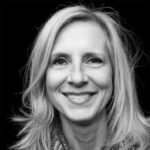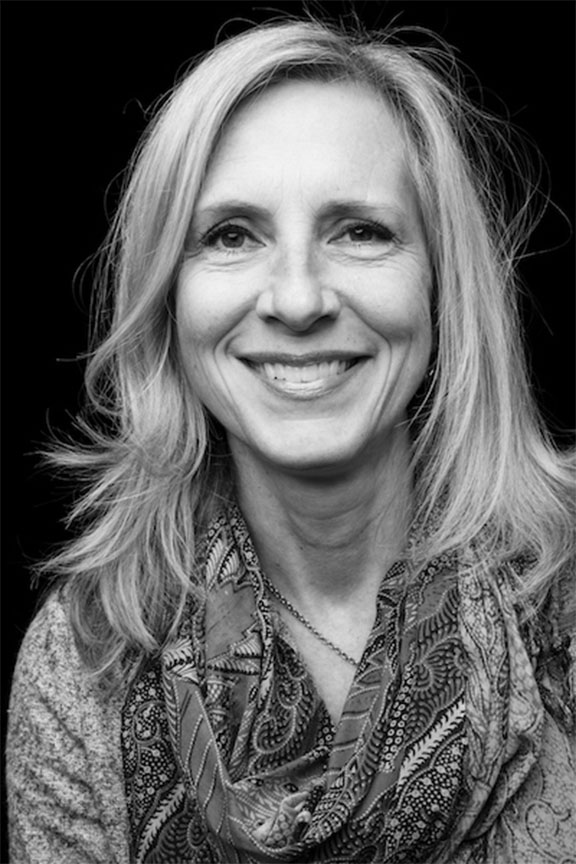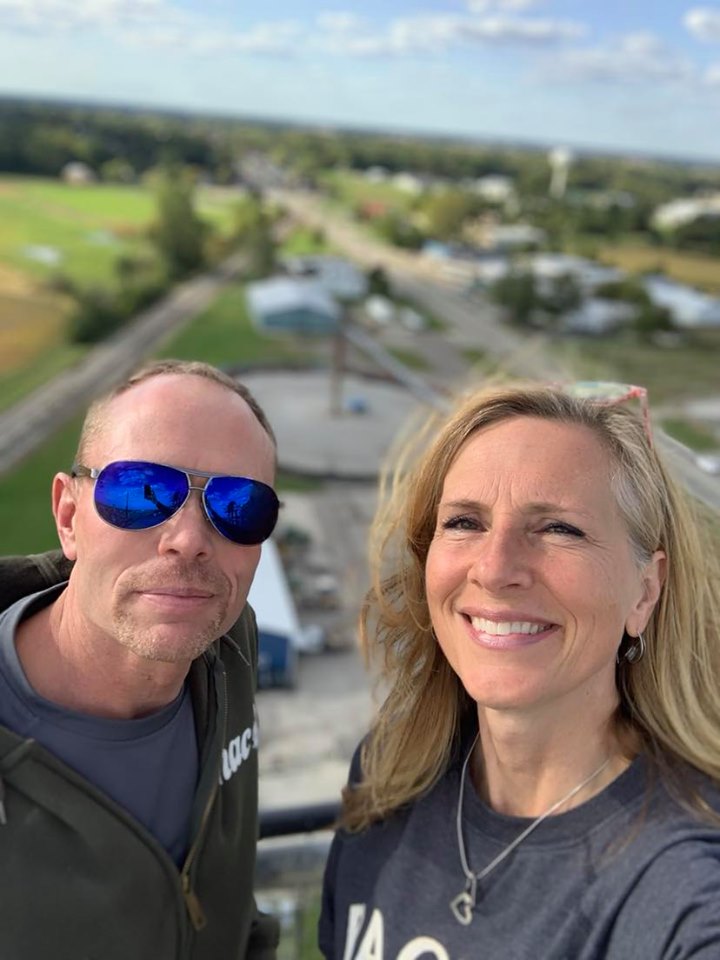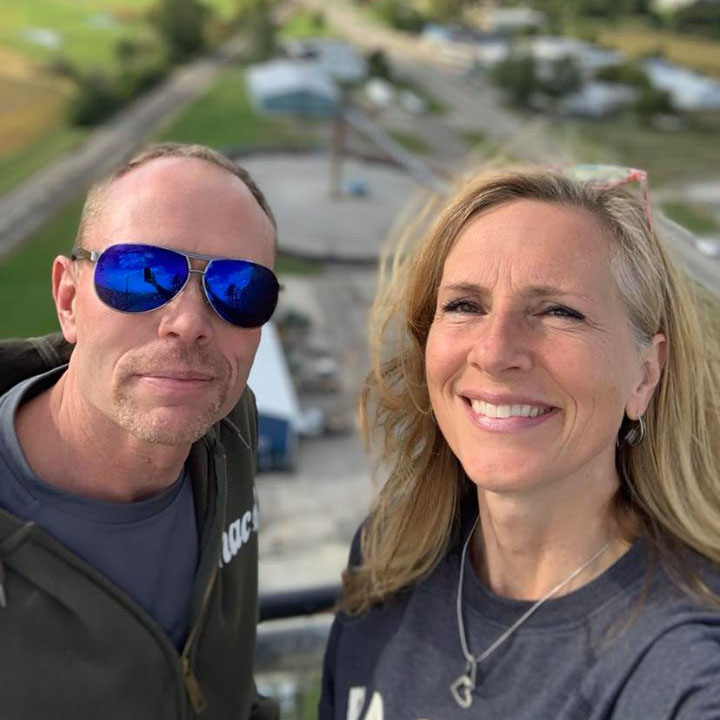Spring 2020
3
The Case for the Perpetual Outside Experience
Kristy Gledhill, Class of 2021
The Case for the Perpetual Outside Experience

Kristy Gledhill
Class of 2021
Plunging into year one at RWW, I didn’t give my Outside Experience (OE) much thought. I was immersed in reading and writing critical response papers, creating and revising poems, anticipating my mentor’s feedback and wondering if I was even doing it right. But by the end of that year, the OE—a second-year requirement unique to RWW—loomed large for many of us in Cohort 15. The theme was up to me, and I needed to devise a way to spend ten or more days going deep—writing and researching in preparation for my final creative thesis.
Many students do their OE in one retreat or residency, but as I revisited my own poetry and began to explore possibilities, three exciting options took shape. I would begin with a retreat in Washington state, go back to my hometown in Michigan, and then head “up north” to a second retreat. I hoped these consecutive experiences would help me examine a sense of place in my own poetry and learn how other poets write especially place-based poetry.
Not long after settling into my second year, I found a question that would morph into the “Aha!” of my OE. It happened as I was re-revising a first-year poem—one of those that had sort of come out of nowhere; the best kind. It sang. I couldn’t leave it alone, mostly because of this: “In flat country, it's funny what'll surface and draw you to it.” The real question eventually became, “What is it about the place that raised you that makes you you?” And that question grew into many sense-of-place related questions, thanks to conversations with my mentor Kevin Clark, RWW Director Rick Barot, cohort members and other friends.
"The real question eventually became, 'What is it about the place that raised you that makes you you?'"
I struck it rich with LitFuse, an annual poetry workshop in the apple orchards of eastern Washington—four scenic hours from where I live. The theme? A sense of place. The featured artist? Natalie Diaz.
A trip home to rural southeast Michigan was next. I’d spend time talking with old friends and family, I’d hang out in the cemetery, the orchard, the library, the donut shop. I’d drive down narrow, ditch-lined country roads and, hey, I could hit homecoming weekend! But I also wanted purposeful time to process all I was going back to explore, examine and exhume. So I booked three nights at a local convent.
Inspired, I found another gem to mark the end of my journey home. The 2019 Lost Lake Writer’s Retreat in northeast Michigan, not far from Lake Huron, featured Dorianne Laux—one of my favorites. When I booked it, the organizer hooked me up with a one-on-one with Laux herself! (I was terrified.)
With the juicy contemplative center of my hometown OE sandwiched between two fortuitous finds, I set off in late September, burning questions safely tucked in my yellow notebook.


Kristy Gledhill. Photo by Dean Davis.
LitFuse was a springboard of deep thought, writing and conversation about place that launched me into a vibrant Michigan autumn. I basked in the contemplative atmosphere of the convent—a facility on the Siena Heights College campus: part home for the Dominican nuns and part retreat center. To live quietly among the sisters was pleasing and fruitful; I ate with them in the cozy cafeteria, visited their art gallery and meditation space, curled up on their reading-room sofas, lingered in their labyrinth and orange- and yellow-canopied nature paths.
One night, committed to creating poetry all evening, I’d written myself into a hole. Looking out the blackened window at nothing but my own blank reflection, I lost it: This sucks. It is a ridiculous idea. This is no better than the crap I was writing in high school. Why would anyone care? I’m not even doing it right. Also, I cried. But then, mid-post-cry-hiccup, it hit me: there is no “doing it right.” Aside from requiring me to spend 100 hours doing something that will “enrich various aspects of your life as a writer,” no one’s telling me what to do here. I am. The OE’s deep gift, I realized, is to teach me that as a poet, it is my responsibility to ask the questions, find the opportunities, seek out the people, situations and settings that feed my writing.
“This is how you do it,” I said aloud. “This is me doing it!” And it was all I could do not to open my window and whoop.
"The OE’s deep gift, I realized, is to teach me that as a poet, it is my responsibility to ask the questions, find the opportunities, seek out the people, situations and settings that feed my writing."
Riding the high of The Convent Incident, I dug into my OE questions more expansively with a new sense of command and headed home. Southeast Michigan is flat. Like, old Lake Erie bottom flat. It is difficult to find a rise, let alone a viewpoint. Looking out my parents’ window one morning, across the cornfield at the county grain elevator (the highest point for miles), I realized two things: 1) I need to get up there, and 2) my childhood friend, Noel, runs the place.
Cue The Elevator Episode: A screeching cage ride up a filthy shaft. A vertical two-story, rusty iron ladder. A tight squeeze through a rooftop hatch into a Midwestern fall day so clean and bright it snapped around us. Noel and I stood there, grinning like the kids we’d been. High above streets shaded by fall-tinged trees, the town’s-edge schoolgrounds and cemeteries, stubblefields stitched with spruce windbreaks, we surveyed our little hometown and talked. Mostly, he talked—about raising his kids in the town that raised him, about our old friend Steven, gone too soon—and I listened to him, to the wind, to the sound of distant combines. And then this: I am a poet, who asks questions, who imagines ways to consider their answers, whose curiosity runs unusually deep and who cannot believe her luck in getting to see Blissfield (yes, really. . .) from this angle on such a gorgeous day.


Kristy and Noel during her OE.
With a prospect view of the place that raised me, I realized, I am giving myself permission to be an artist. From LitFuse to Blissfield to Lost Lake, I found myself opening a more vulnerable, wondering part of myself and connecting with people and places from an attitude of exploration, discovery and humility.
On the last leg of my trip, heading north to Lost Lake, I learned Dorianne Laux had called out sick! I was devastated, but here’s why that was okay: I bonded with the other writers at that remote lakeside retreat—novelists, poets and songwriters. And one night, over lively conversation and pan-fried walleye, I had this clear thought: What is to stop a poet from making of her life one big perpetual Outside Experience?
The answer, I think, is nothing.
Kristy Gledhill is a freelance writer and poet living in Gig Harbor, Washington. An intrepid member of RWW's Cohort 15, Kristy’s fascination with place and what it stirs in us curves the arc of her writing—poetry to essays to grants. From her hometown of Blissfield, Michigan, to the shores of Puget Sound (and several stops in between), Kristy has always felt compelled to feel her way to and through the images and ideas that help her (and others) understand what we’re all doing here.
Photo credit: Dean Davis (PicturesofPoets.com).
